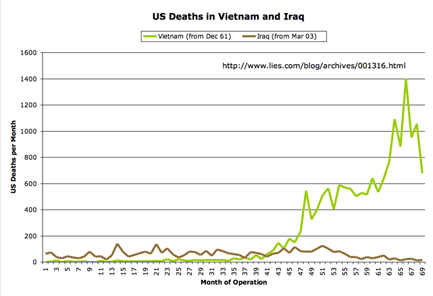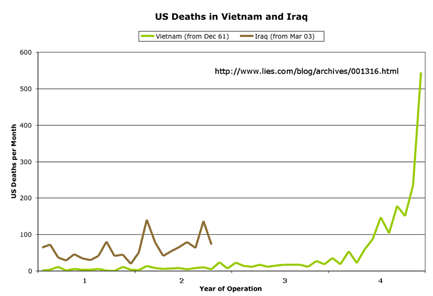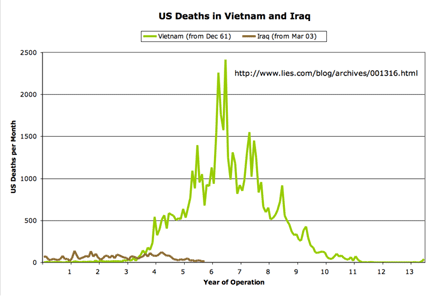Broussard Spokesperson: ‘Meet the Press’ Story About Rodrigue’s Mother Based on ‘A Misunderstanding’
Monday, September 19th, 2005Valued reader trg34221 forwarded this MSNBC article via the comments on an earlier item: An emotional moment and a misunderstanding.
Since the broadcast of the interview, which elevated Broussard to national prominence, a number of bloggers have questioned the validity of Broussard’s story.
Subsequent reporting identified the man whom Broussard was referring to in the Meet the Press interview as Thomas Rodrigue, the Jefferson Parish emergency services director. Contacted on Friday by MSNBC.com, Rodrigue acknowledged that his 92-year-old mother and more than 30 other people died in the St. Rita nursing home. They had not been evacuated and the flood waters overtook the residence.
The chronology of the phone calls described by Broussard came under particular scrutiny by bloggers.
Rodrigue said he didn’t see or hear Broussard’s comments on Meet the Press. When told of the sequence of phone calls that Broussard described on Meet the Press, Rodrigue said “No, no, that’s not true.”
“I can’t tell you what he said that day, why he was confused, I’m assuming he was under a tremendous amount of pressure,” Rodrigue told MSNBC. “I contacted the nursing home two days before the storm [on Aug. 27th] and again on the 28th of August,” Rodrigue said. “At the same time I talked to the nursing home I also talked to the emergency manager for St. Bernard Parish,” Rodrigue said, “to encourage that nursing home to evacuate like they were supposed to and they didn’t until it was too late.”
Broussard must have been confused “because I was calling, not my mother calling me, I was calling her,” Rodrigue said. Further, Rodrigue says he never made any calls after Monday, the day he figures his mother died, based on conversations he’s had with another person who had a family member perish inside St. Rita’s. Officials believe that the residents of St. Rita’s died on Monday, Aug. 29, not on Friday, Sept. 2, as Broussard had suggested.
Broussard could not be reached for comment Friday, but Jackie Bauer, a spokeswoman for Broussard who was present during the Meet the Press interview, said “it was a misunderstanding.”
Late on Friday, Bauer told MSNBC.com: “I was there when he (Broussard) was doing that, when he was saying that, I think he was meaning that he was calling, he was calling and trying to talk to Tommy and telling him ‘don’t worry,’ trying to console Tommy, ‘don’t worry, we’ll get her out, don’t worry we’ll get her out.'”
When asked how Broussard could have gotten the details of his mother’s story so wrong, Rodrigue said, Broussard “was emotional, absolutely and he was from the time that he found out that, you know, that my mother had died and I was here doing what I’m required to do for the citizens for Jefferson Parish.”
So, there you have it. The only real question remaining at this point is whether Broussard acted innocently, getting “confused” about the chronology in the stress of everything that was happening, or whether he in fact knew what he was doing, and chose to alter the story to bolster his case about the slowness of the federal response.
I’m not sure there’s any way to answer that at this point. It probably comes down to your personal level of cynicism as applied to politicians generally, and to local (Democrat) government officials in Louisiana specfically. For myself, being fairly cynical, I think he probably was intentionally lying. It’s not a slam-dunk, but for me it leans pretty heavily in that direction.
As my final comment on the whole thing, I wanted to mention something I noticed about the way the controversy got covered in blogland. I was one of a whole bunch of people who linked to the Broussard MTP appearance as soon as video of it became available on the web (on Sunday, September 4). I’m not aware of anyone else who raised the question of his credibility as early as I did (on Monday, September 5, in Was Broussard telling the truth?), though maybe I missed somebody in Rightyland, since I tend not to pay too much attention to them. Certainly plenty of those folks have chimed in since then about having doubted him from the beginning.
I pointed out the discrepancies between the media accounts and Broussard’s version of events on Thursday, September 8 (in Blame game), basing that on the news accounts posted in comments by the same trg34221 who contributed the MSNBC link I’m pointing to above. (Who is this person of mystery, anyway? Does he/she have a weblog?)
On September 10 I posted another item (More detail on Tom Rodrigue’s mother), again linking to a news item supplied by trg34221.
On September 14, righty weblogger John of wuzzadem posted an item about the story: Bumped: Another Katrina Myth: Aaron Broussard’s “Emotional” Appearance on MTP. John linked to the same news articles linked to in my pieces of September 8 and September 10. Interestingly, the same stuff I’d been posting about for almost a week, attracting relatively little notice in terms of inbound links, became an overnight sensation once John posted about it; he received oodles of inbound links in the following days, including one from high-profile wingnut Michelle Malkin.
I don’t begrudge him the traffic, and I appreciate that he did link to me in his original item. The actual way he cited me rankles just a teency bit, though: “To their credit, even Lies.com issued a correction after initially reporting on Broussard’s accusations…”
Sigh. I guess it’s human nature for a righty to frame my coverage of the story that way. See, from my perspective, this is the sort of thing that should make a self-styled conservative sit up and take notice: I didn’t have to make a big deal about Broussard. But I saw an example of what appeared to be a politician lying, and I pointed it out and followed up on it, despite the fact that the politician in question was making a political point (that the feds screwed up the Katrina response) that I agree with.
See, that’s called “being objective.” It’s the sort of thing that the mainstream media does (or at least did, historically) all the time. Sadly, it’s a form of behavior that is increasingly rare these days.
I fall short of that standard a lot (obviously). But I’m doing my best to live up to it. As I described in the manifesto, I take this issue pretty seriously. I wish more people did.




